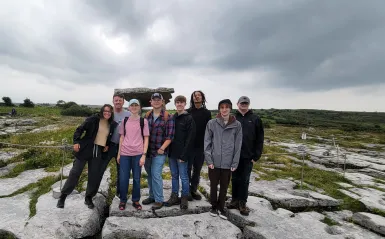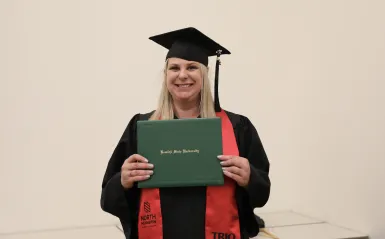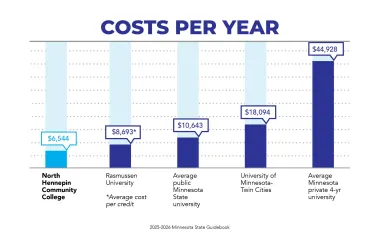Transfer Options
NHCC's Biology AS Degree transfers seamlessly to many bachelor's degree programs at Minnesota State universities, and there are many transfer options for private colleges. If you plan on transferring to a bachelor's program, be sure to meet with your academic advisor in your first semester at NHCC.
Minnesota State Transfer
In partnership with Bemidji State University, students can earn a bachelor's degree in Biology on NHCC's campus.
The Biology Transfer Pathway AS will transfer to any of the following Minnesota State universities:
- Bemidji State University
- Metropolitan State University
- Minnesota State University Mankato
- Minnesota State University Moorhead
- Southwest Minnesota State University
- St. Cloud State University
- Winona State University
Private College Transfer
Be sure to meet with your academic advisor if you are considering transferring.
The Biology Transfer Pathway AS will transfer to any of the following Minnesota private colleges:
- Augsburg University
- Bethel University
- College of St. Scholastica
- Hamline University
- St. Catherine University
- University of St. Thomas
Biology Classes at NHCC
NHCC's Biology program is very hands-on. Students learn through a mix of classroom and skills-based lab activities.
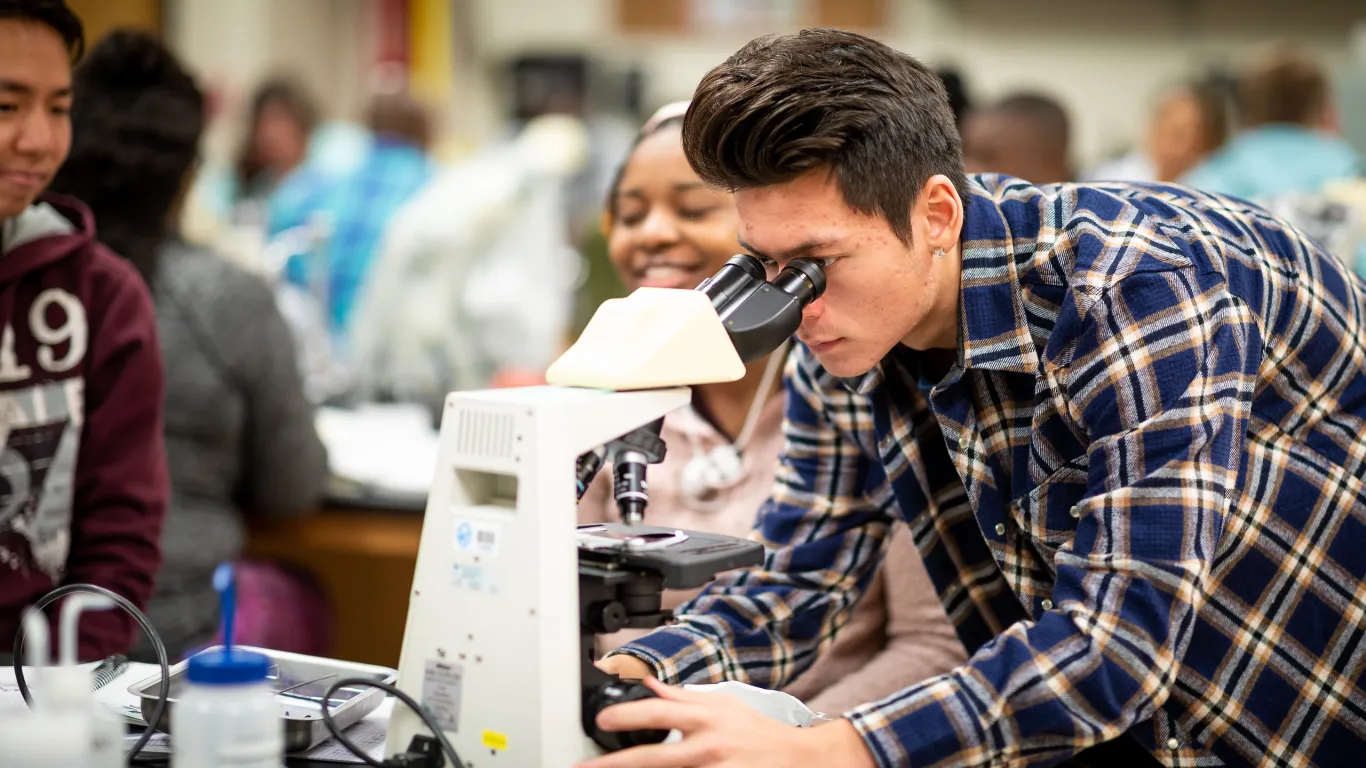
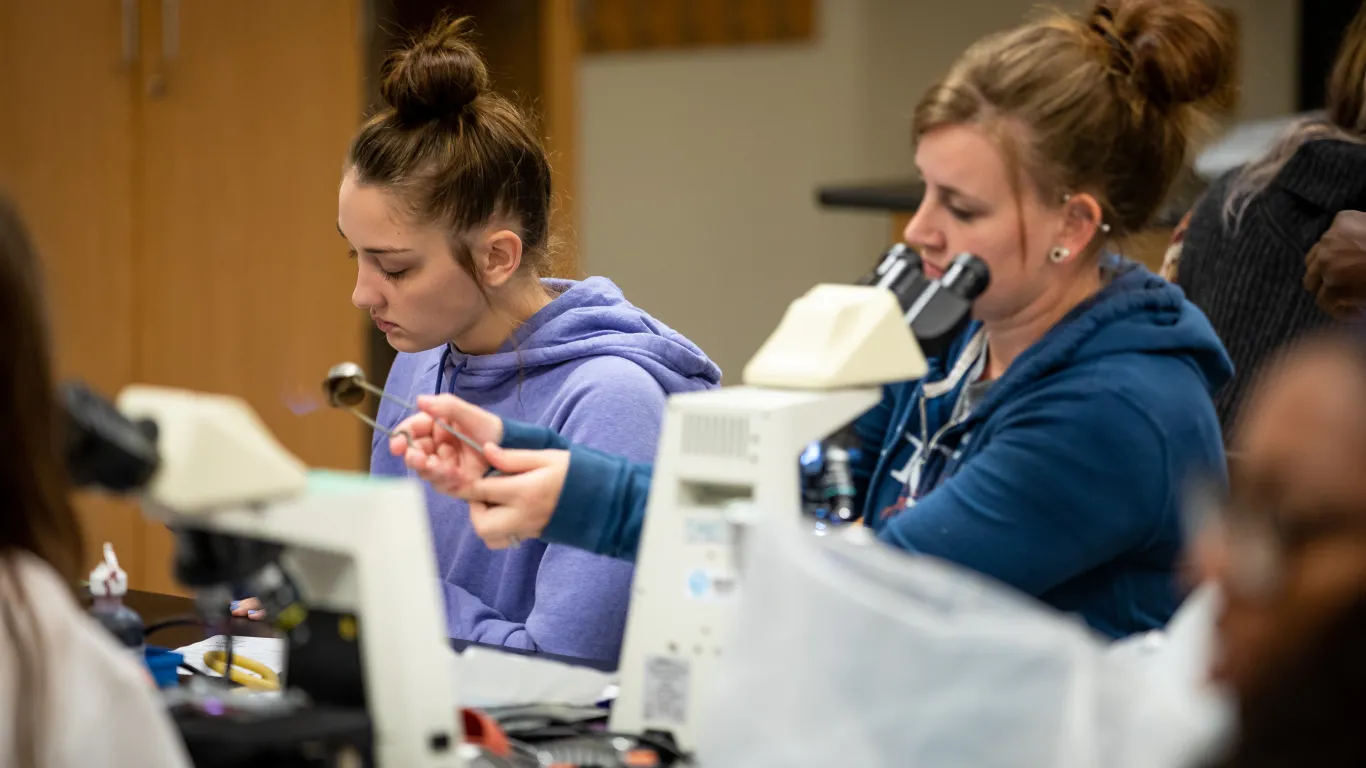

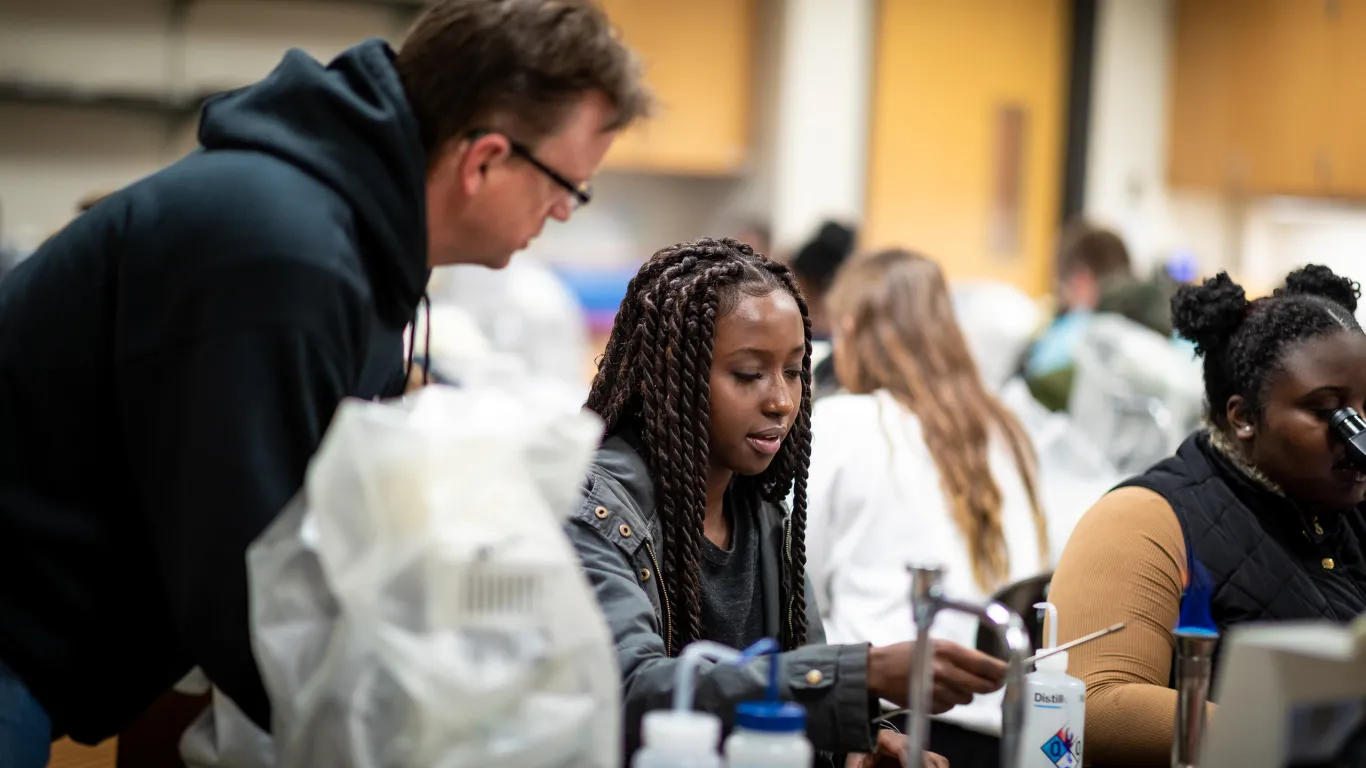
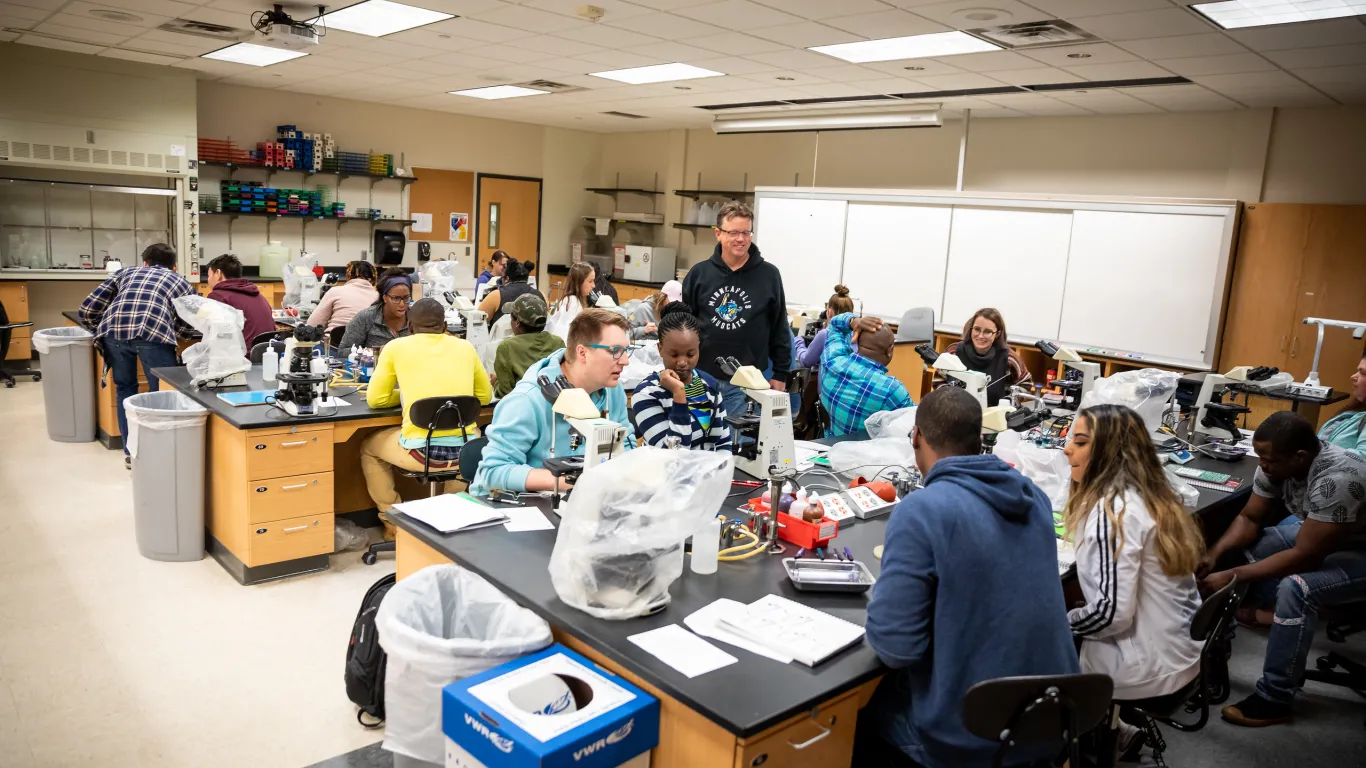
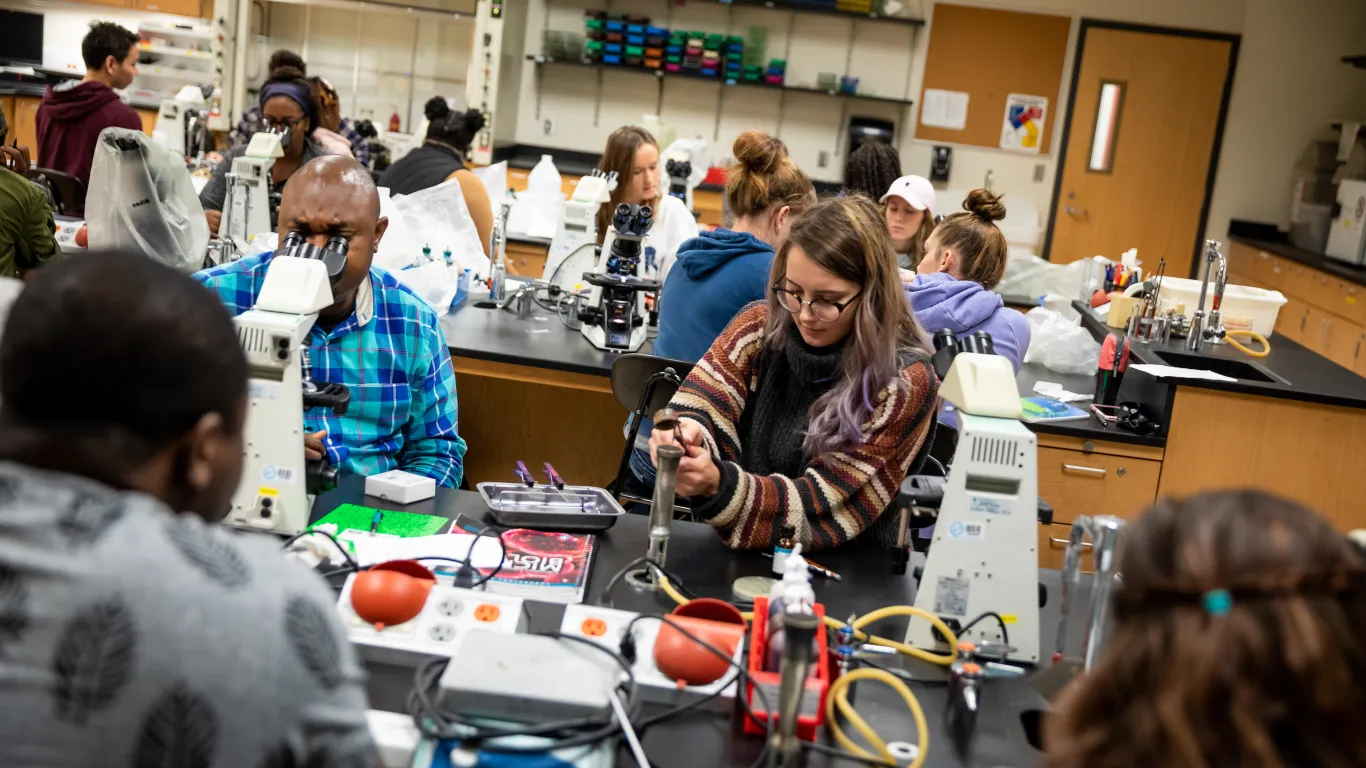

Biology Career Outlook
An associate degree in biology provides a solid foundation for entry-level jobs.
Potential job titles with an associate degree:
- Lab technician
- Research assistant
- Environmental science technician
- Microbiology technician
- Quality assurance technician
- And many more
Earning a bachelor's degree in biology significantly improves your career options and earning potential. When transferring to a bachelor's program, you can choose a focus on a specific field within biology that aligns with your interests and career goals.
Potential job titles with a bachelor's degree:
- Clinical laboratory technician
- Microbiologist
- Pharmaceutical sales rep
- Molecular biologist
- Research scientist
- Biomedical engineer
- Agricultural technician
- Forensic scientist
- And many more
Where NHCC Biology Grads Work
- National Institutes of Health
- General Mills
- Boston Scientific
- Medtronic
- Cargill
- Bio-Techne
- Takeda
- Beckman-Coulter
- Minnesota Department of Natural Resources
- U.S. Fish and Wildlife Service
- Allina Health
- Restoration Dental
- Lab Corps
- National Cancer Institute
Biology Program FAQs
Yes! Through our partnership with Bemidji State University (BSU), you can earn a bachelor's degree in Biology while taking all of your courses at NHCC.
This degree can serve as the beginning of your journey to medical school, pharmacy school, dental school, veterinary programs, biomedical research, medical laboratory science programs and plant and wildlife biology research.
Yes! Your labs will be fully in-person and you will learn science by doing it! Biology faculty members develop your scientific thinking with CUREs (Course-based Undergraduate Research Experiences), which involve students in original research projects and collaborations with national networks of scientists.
All your biology classes will be in-person, but you can choose to take many of your required general education courses in online, in-person, or hybrid course formats.
There are many ways to get involved on-campus, and the Biology Club is a great option for students in the biology program.
You can also check out the Clubs & Organizations page for a complete list of students clubs, Life at NHCC for info on student life, and the calendar for upcoming events.
Paying for College
NHCC's tuition is among the most affordable in Minnesota.
Financial Aid
- Scholarships are money you don't have to repay
Grants are money you don't have to repay
Free College Tuition
The North Star Promise scholarship program provides free college tuition to eligible students. Find out if you might be eligible.
Program Roadmaps
Program roadmaps provide students with a guide to understand the recommended course sequence to complete their degree.
- Biology Transfer Pathway Program Roadmap Full Time
- Biology Transfer Pathway Program Roadmap Part Time
Biology Transfer Pathway Curriculum
Get Started
If you're ready to get started, apply to NHCC. If you'd like to learn more, you can visit campus or request information.


